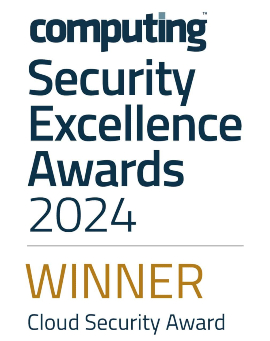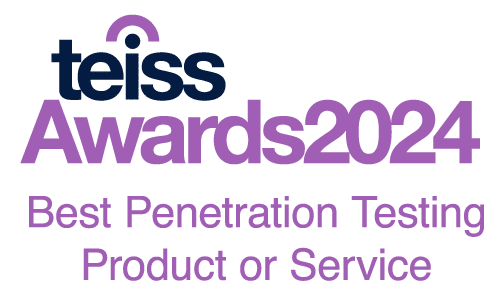
Offensive Cyber Security Training
Develop practical offensive cyber security skills through hands-on training, including red teaming and ethical hacking techniques
LRQA empowers developers to deliver secure code
As the cyber threat landscape continues to evolve, organizations need cyber security professionals with cutting-edge offensive skills. LRQA’s Offensive Cyber security Training empowers individuals to understand and exploit weaknesses in corporate networks, simulating real-world cyberattacks. Our training covers the latest red teaming techniques, penetration testing methodologies, and ethical hacking tools, ensuring that participants are well-prepared to counter cyber threats.
Through a mix of theoretical knowledge and hands-on lab-based exercizes, learners are immersed in an environment that mirrors corporate networks. This allows them to apply offensive cyber security techniques in realistic scenarios, improving their ability to detect and mitigate vulnerabilities. Our training aligns with industry-recognized standards and is delivered by seasoned experts with extensive red teaming experience.
Award-winning expertise
Our cyber security team continues to achieve multiple vendor certifications, highly respected industry accreditations and international accolades, demonstrating the breadth, depth and impact of their services.



 The latest techniques
The latest techniques
The latest techniques, tactics and procedures (TTPs) being used by real-world threat actors will be demonstrated on a practical level. This includes stealthily bypassing defensive security controls (Common EDRs and next-gen AV), which are typically operating within modern enterprise environments.
 Replication of corporate networks
Replication of corporate networks
Includes both a theory element as well as hands-on practical exercises, where the techniques learned can be practiced in a training lab environment specifically designed to replicate a typical corporate network.
 Blue Teaming included
Blue Teaming included
Our training also covers common defensive techniques that are deployed by the blue team, such as host-based event logging and monitoring, strict egress filtering, application whitelisting and various other endpoint protections.
 Expert guidance
Expert guidance
Enumerate the target objective and attempt to compromise the critical system in scope for the Red Team. This will include multiple levels of privilege escalation and lateral movement to gain access to the objective system.
Our approach
At LRQA, we understand that a strong defense starts with knowing how attackers think. Our Offensive Cyber Security Training equips professionals with the tools and insights they need to identify and exploit weaknesses, helping their organizations stay ahead of the most advanced cyber threats. With a focus on hands-on, real-world exercises, participants gain valuable experience that they can immediately apply to their roles.
Our training is designed and delivered by cyber security experts with years of red teaming and penetration testing experience. By training with LRQA, you will gain access to cutting-edge techniques, ensuring that you are well-prepared to protect your organization from evolving cyber risks.
Our Offensive Cyber Security Training is tailored to the specific needs of your business. Our expert consultants partner with you to define your training objectives at the start but be flexible in the delivery of the course.
Below is an example of training where web application development and impact demonstrations were our client’s primary concerns.
Introduction
- Trainer introduction
b. Course introduction
c. Objectives
d. Current threat landscape
e. Recent breaches and their implications (GDPR)
Information security fundamentals
- Confidentiality
b. Integrity
c. Availability
d. Why use the CIA model?
Information security data states
- Data at rest
b. Data in use
c. Data in transit
d. Secure communications
e. Access controls
f. Secure storage
g. Hashing and password storage
Understanding risk
- Asset value
b. Threat consideration
c. Vulnerability assessment
d. Risk calculation
e. Risk mitigation
Trust relationships
- Principle of least privilege
b. Data sharing between components
c. Secure handling of data and user input
OWASP top 10 vulnerabilities
Analysis of each of the following types of vulnerability with
hands-on exploitation and discussion around remediation:
a. A1: Injection
b. A2: Broken Authentication
c. A3: Sensitive Data Exposure
d. A4: XML External Entities (XXE)
e. A5: Broken Access Control
f. A6: Security Misconfiguration
g. A7: Cross-Site Scripting (XSS)
h. A8: Insecure Deserialzation
i. A9: Using Components with Known Vulnerabilities
j. A10: Insufficient Logging & Monitoring
Being proactive about security
- How to research about security issues
b. Threat modelling techniques
c. Test plans
d. OWASP Application Security Verification Standard
and how this can be used during development
and Quality Assurance.
OWASP top 10 proactive controls
- Define Security Requirements
b. Leverage Security Frameworks and Libraries
c. Secure Database Access
d. Encode and Escape Data
e. Validate All Inputs
f. Implement Digital Identity
g. Enforce Access Controls
h. Protect Data Everywhere
i. Implement Security Logging and Monitoring
j. Handle All Errors and Exceptions
Resources for developers
- OWASP Code Review Guide
b. S-SDLC
Why work with us?
Specialist expertise
Our cyber security experts hold multiple vendor certifications and accreditations as well as highly respected industry accreditations from CREST, the PCI SSC, ISC2, BCI, Chartered Institute of IT, and NCSC CHECK.

Industry leadership
We lead and shape industry on advisory boards and councils including the PCI SSC Global Executive Assessor Roundtable and CREST councils in the Americas, Asia, EMEA and the UK. We are certified by a range of governing bodies including the payment card industry and are approved as a Qualified Security Assessor.

Everywhere you are
Operating in over 55 countries, with more than 250 dedicated cyber security specialists and over 300 highly qualified information security auditors across the world, we can provide a local service with a globally consistent dedication to excellence.

Award winners
We have been recognised for the breadth and depth of our services – including the TEISS Award for Best Penetration Testing Service in 2024, Enterprise Threat Detection and Cloud Security awards at the Security Excellence Awards 2024 and the Stratus Award for Best Managed Cloud Security Service.

FAQS
Will I get a PDF document with the slides and handouts for the course?
There is a watermarked PDF provided with every purchase of the course that will be e-delivered before starting the training. Each PDF handbook will be watermarked with the delegate's full name and email address.
How do I access the labs for this course?
The labs for this course are all hosted online and will be accessible from any unfiltered internet connection. Each delegate will be provided with their virtual private servers (VPS) in the cloud to perform the exercises and corresponding final labs (1 x Windows and 1 x Linux).
Will the labs be online after the course has finished?
The labs will only be available for the duration of the course and then will be shut down.
Can I use my own C2 framework for the labs?
This course is C2 framework agnostic and it is possible to use any tools that you wish to undertake the challenges and exercises, however, if the C2 framework is not known to the trainers they may not be able to provide support for the labs. The most common frameworks used for this training are PoshC2, Cobalt Strike, Empire and Covenant.
Will I get a certificate for completion of this course?
LRQA will send a digital certificate to all successful delegates who complete the training course.
The world leader in CREST accreditations
We are proud to be the only organization in the world with a full suite of accreditations from The Council of Registered Ethical Security Testers (CREST).
Our team of consultants have achieved the highest accreditations for Penetration Testing, Red Teaming, Incident Response services and Threat Intelligence. In addition, we were also the first organization to be CREST accredited for our Security Operation Centre services.










